Marriage & Family Therapy News
Department of Marriage and Family Therapy statement on COVID-19
Interpersonal stressors tend to increase during uncertain times such as the one we are experiencing now due to the COVID-19 pandemic. At a time when we are social distancing and self-isolating, we may not have access to familiar ways of coping. We are facing a challenging time of disruptions and abrupt transitions without knowing when this will end. Some of us may also be in situations where a family member is sick or vulnerable and we cannot be with them physically. And we are only at the beginning of a potentially prolonged altered state of affairs.
How do we ensure and promote relational health in our families and communities during these times? We know from studies investigating abrupt disruptions (such as environmental disasters, war, and displacement, unexpected deaths or losses in families) that emotional responses in families may range from detachment to preoccupation. Each of us deals with crisis in different ways and there is no “right way” of dealing with something like this.
A few key reminders may be helpful at this time:
- Recognize that in times of uncertainty, interpersonal stress is high. Balancing your need for space and connection is important. Communicate with a partner or another adult in the household about feasible and sustainable routines. For example, does it make sense to have one meal together every day? Does it help to schedule a time for work and play for the entire family? Or does it work better if individuals are responsible for most of their schedule? Young children and adolescents may need differing levels of guidance to structure their time. Adults may need reminders that working from home does not mean working all the time.
- Acknowledge personal and relational limits. Setting realistic expectations about what you and your family may be able to do at this time would be important. How you and your family manage this crisis does not define you or your family members. Some people are calm in times of crisis and able to navigate anxiety with ease, while others will be more challenged. Try hard not to judge and be easy on yourself and others.
- Address health and safety concerns as calmly as possible with children. Be responsive to each child’s tolerance for information. Follow your child’s lead in terms of how much information they can handle. Being frightened is not good for children. Children can handle stress but not unmanageable stress.
- Create times to talk about your needs and invite others to talk about their needs. Try to listen to one another quietly and without distraction. It’s helpful, when possible if everyone can be heard when changes are being made. Lists and schedules may relieve stress for one person while making another feel overwhelmed and controlled. How can everyone get some of what they need?
- Take care of your physical health. Make time to engage in physical fitness and prepare healthy foods. These can be done together as a way to be present in relationships (e.g., couples taking walks, parents and children preparing healthy snacks) or may also be a way to have time alone to get a break from relationships (e.g., going for a run, doing an online workout or meditation).
- Connect with others virtually. Set aside time to virtually hangout regularly with people in your life.
- Limit alcohol use. Even though it may be tempting to lean towards alcohol and other substances, it may be unhelpful in navigating ongoing challenges. Interpersonal conflicts, in particular, have a strong association with substance use, especially in stressful times. Once you or your family member has had any alcohol, do not engage in any intense discussion or argument. Wait until both of you are sober.
- Seek professional help for yourself and your family, if needed. Many practitioners now provide telehealth services (via video or telephone). Find a practice that uses secure, HIPAA compliant technologies.
- Connect with communities: This crisis has differential impacts depending on each of our social locations and places in society. If you are able to, figure out ways in which to connect and help communities in need.
Resources:
Find therapists in your area:
24-hour telephone counseling, suicide prevention, crisis counseling, information, and referrals:
Emergencies – Dial 911
Health and Human Services Referral Line – Dial 211
Contact Hotline 315-251-0600
contactsyracuse.org (click on crisis chat) – online crisis chat
National Suicide Prevention Lifeline -1-800-273-TALK (8255)
Vera House Support & Information Line – 315-468-3260
National Domestic Abuse Hotline – 1-800-799-7233
Disaster Distress Helpline – 1-800-985-5990
Upstate Medical Center Hotline – 315-464-3979
Crisis resources for individuals with a gender diverse experience:
Trans lifeline at 877-565-8860
Thetrevorproject.org
Trevorlifeline:1-866-488-7386
TrevorText: 678678
COVID-19 updates:
Onondaga County Coronavirus (COVID-19) Information Site
World Health Organization (WHO) Information
Tips for age-appropriate conversations with children:
National Child Traumatic Stress Network
National Association of School Psychologists
Tips for coping managing COVID related stress:
Anxiety and Depression Association of America
Centers for Disease Control and Prevention
NYS Office of Mental Health
Hackensack Meridian Health
Therapy program seeks outreach to improve mental health of refugees
By Richard J Chang, Asst. Digital Editor, Daily Orange.
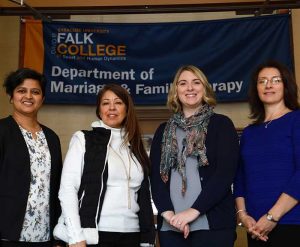
Gangamma, an associate professor in Syracuse University’s Marriage and Family Therapy department, oversees the refugee mental health program. The Ph.D. program is now offering greater clinical services to better communicate with local refugee families, focusing on the effects displacement can have on mental health.
“In Syracuse, there are a lot of programs that provide resources, but what I found there is a lot of strength in building collaborative efforts rather than each person doing their own thing,” Gangamma said.
About 10,000 refugees settled in Onondaga County in the last decade. A 2018 study of mental health disorders in refugees found “a substantial lack of data,” on the full extent of psychiatric disorders within these communities, but stated there is an “urgent need” for intervention services.
Students in the Ph.D. program provide therapy to Syracuse residents for a year. The original intent of SU’s program was to make mental health resources available to refugees, but it has since evolved to focus on training students and language interpreters to provide effective treatment, Gangamma said.
The department realized in fall 2019 that there was a need for interpreters who had medical training in addition to an understanding of the spoken languages and experiences of refugees who experience mental health issues, said Tracey Reichert Schimpff, director of clinical services for SU Marriage and Family Therapy.
Gangamma created a training program for therapists and interpreters to more effectively bridge the gap between medical and cultural knowledge, she said. Therapists in the program are now able to communicate with refugees about mental health, she said.
The department is also developing a program to train future clinicians about how to engage in discussions with refugees about mental health in more sensitive and appropriate ways, Reichert Schimpff said.
Seeking support for mental health is institutionalized in western countries, but may be looked down upon within the cultures some refugees come from, Gangamma and Reichert Schimpff said.
The biggest difficulty with offering mental health services to refugee families is establishing trust, Reichert Schimpff said. Students in research universities tend to leave after a few years, which makes it hard to establish connections with patients, she said.
“Certain populations and certain people who have multiple challenges might not think of therapy being an option, whether culturally, in their family or just in terms of safety and being recognized,” Reichert Schimpff said.
Resettlement agencies help refugees find employment in Syracuse and develop language skills within the first 90 days after arrival. Housing often becomes the first conflict for refugees after moving to the area, Reichert Schimpff said.
Some refugees also struggle to adjust to changes in their economic and social statuses, Gangamma said. Finding suitable jobs and a place to live can be challenging, she said.
“There are these post-migration factors related to poverty and underemployment,” Gangamma said. “Some of them, when they are resettled to a place like Syracuse, they are often put in places where poverty levels are really high or neighborhood factors are not entirely favorable.”
SU Marriage and Family Therapy sends student therapists to different locations to educate refugee families and provide therapy. Gangamma sent students to interview farmers who are part of the Syracuse Refugee Agriculture Partnership Program, which provides refugees with agricultural training and education.
The students used the interviews to compare the experiences of refugees who are not in the program and to analyze how farming affects their mental health, Gangamma said.
Marriage and Family Therapy also partnered with PEACE, Inc., a Syracuse organization that aims to help residents become self-sufficient, to collaborate on mental health services, offer translation services and find medical interpreters.
The partnership provided SU with a site close to the city’s refugee communities to send student therapists, said Maria Taddeo, a coordinator for PEACE Inc.’s Head Start program, which provides childhood development and family services.
Finding refugees and admitting them into Head Start programs was easy, but trying to communicate with families to provide support was complicated due to the costs associated with hiring interpreters, Taddeo said.
Head Start surveyed the needs of communities throughout Onondaga County and became aware of the educational, economic and health concerns among Syracuse’s refugee population, Taddeo said.
“We see a lot of family needs that go unserved because we don’t have the capacity to do that,” Taddeo said. “There might be children that are diagnosed with disabilities or going undiagnosed for the lack of communication effectively through the English language.”
Taddeo said that a lack of knowledge of American culture and persisting language barriers contribute to the stress refugee families go through. It is more difficult to teach an adult English as a second language than it is to teach children, which often elevates stress, she said.
The problem is not lacking mental health awareness, but rather the ability of mental health service providers to communicate with and reach refugee communities, Gangamma said. Going into the field and finding firsthand what the community’s needs are has been the focus of SU’s program, she said.
“If you don’t have training for therapists to work with refugees, you can’t build an intervention,” Gangamma said.
This article was originally published at the Daily Orange on February 12, 2020 at 11:37 pm. Read the original article.
Dean Murphy welcomes Falk students to campus
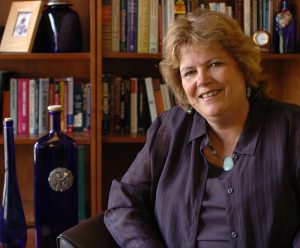 Wednesday, January 15, 2020
Wednesday, January 15, 2020
Dear Falk College Students,
Welcome back to campus, returning Falk students. And welcome to new and transfer students joining us this spring. We are so glad to have you join our Falk family. I hope that your winter break was filled with family, friends, and loved ones, and plenty of time for both restful and exciting activities.
As the Spring 2020 semester begins, I would like to offer you a few reminders and updates:
Falk faculty, staff, and I as your Dean, are here to support each of you on your journey here as students, as people, and as citizens. Our doors are always open to you.
In addition, you were invited to an open house with me and Falk College faculty and staff on January 14. It was great to see many of you there for the first in a series of regularly scheduled events that we will continue this semester and into future semesters. I welcome your feedback for future College activities.
As we face challenges on our campus, and as our students advocate for a better Syracuse University, you have my assurance as Dean that Falk College is fully committed to playing a critical role in these efforts, doing what we can to strengthen and build the campus community we know we can be.
Some of you are actively involved in the Falk College Dean’s Committee on Diversity and Inclusion, established in 2018. We are so grateful for the action and positive change resulting from the efforts of our members, which include faculty, staff, graduate students and undergraduate students from all academic programs in Falk College. There is much work yet to do, and we strongly encourage you to be part of it. Committee meetings are held monthly throughout the academic year. Students interested in being involved in the Committee should contact Professor Chandice Haste-Jackson at cmhaste@syr.edu or the Falk College Dean’s Office at tbattist@syr.edu.
I’d like to remind all students that Falk College Student Services is your dedicated support system. Student Services counselors are here to provide you with private academic advising and help you meet your requirements and goals. In addition, they are your resource for private consultation related to student social and emotional concerns. If you have any concerns throughout your academic career, please contact Student Services or visit 330 Barclay Hall in the Falk Complex.
Particularly for new students, I encourage you review my Fall 2019 welcome message, which contains helpful information about other important resources like Falk Career Services, the Falk Student Lounge, Falk Café, and our computer labs. You’ll also find information about campus resources, such as health and counseling services in the Barnes Center at the Arch, spiritual life through Hendricks Chapel.
To those of you who will be graduating in May, I give you a special word of encouragement to make the most of this semester to maximize your academic and personal growth, and of course, enjoy it! To all our students in Falk College, I wish each of you an excellent Spring 2020 semester.
Go Orange!
Diane Lyden Murphy, M.A., M.S.W., Ph.D.
Dean
Falk College
Falk College offers graduate program scholarships for 2020
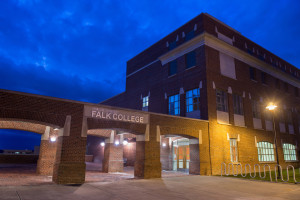 Alumni admitted to one of Falk College eligible master’s program for 2020: All Syracuse University alumni can apply for a scholarship equivalent to 25% of tuition for one of Falk College’s eligible residential master’s degree (listed below). In addition, GRE tests and application fees waived.
Alumni admitted to one of Falk College eligible master’s program for 2020: All Syracuse University alumni can apply for a scholarship equivalent to 25% of tuition for one of Falk College’s eligible residential master’s degree (listed below). In addition, GRE tests and application fees waived.
Scholarship is for residential programs, only.
All students who are full or part-time Syracuse University alumni and do not qualify for the 50% Forever Orange discount are eligible for this scholarship; this includes students already admitted to a Falk master’s program for 2021.
Falk graduate programs include:
- Exercise Science M.S.
- Food Studies M.S.
- Food Studies C.A.S.
- Applied Human Development & Family Science M.A.
- Human Development & Family Science M.S.
- Marriage and Family Therapy M.A.
- Child Therapy C.A.S.
- Trauma Informed Practice C.A.S.
- Nutrition Science M.A., M.S.
- Dietetic Internship C.A.S.
- Integrative and Functional Nutrition C.A.S.
- Public Health MPH
- Addiction Studies C.A.S.
- Global Health C.A.S.
- Sport Venue & Event Management M.S.
Interested students should contact Falk Admissions, submit their application, and must formally matriculate. For more information, please contact the Falk College Office of Admissions at 315.443.5555 or email falk@syr.edu. Award is subject to change.
Strengthening mental health interventions for refugee families
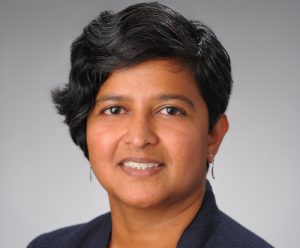
Like others in the mental health profession, Rashmi Gangamma continues to ask herself, “How can we as family therapists promote social justice in our clinical work, in the therapy room?”
One critical area of need is improved training models and intervention methods to better serve the needs of resettled refugees, according to Gangamma, associate professor of marriage and family therapy in Falk College at Syracuse University. “Refugees are often uprooted as a direct consequence of injustice, are further marginalized and under-served as they re-build their lives in a foreign country. For instance, research suggests that post-migration factors such as language barriers, loss of status and community, social support, and racial discrimination exacerbates difficulties of resettlement.”
But there is limited research on how therapists can work with refugees. In her research, Gangamma has focused on family experiences in the resettlement process of refugees from different countries. “Each refugee group is different.” She hopes her research will fill the knowledge gap so therapists can be better equipped to meet the needs of resettled refugees.
“Bottom line for me is that there is a greater need for us to understand refugees’ experiences and to build culturally sensitive and responsive mental health interventions,” she says. “Specifically, for working with resettled refugees, mental health treatment must include the socio-political-cultural contexts of marginalization. For example, resettling in the United States may mean a shift in refugees’ social locations. They may suddenly find themselves in a minority due to their religion and ethnicity, and also in a lower socio-economic class. These changes in their social locations then play a role in how social and family relationships are navigated.”
Findings from these earlier studies pointed to a need for family therapists to expand existing theoretical frameworks that guide interventions. “Refugees occupy a unique transnational space—that is, they have lived in multiple countries, currently have families spread across multiple countries, and as a result are exposed to larger processes of oppression and marginalization across countries. This can influence how refugees experience their own identities, which can affect health and well-being.” This is articulated in a recent article co-authored with Daran Shipman, clinical supervisor in the Department of Marriage and Family Therapy, published in the Journal of Marital and Family Therapy.
In addition to limited therapist training on these unique issues in working with refugees, language barriers can also present challenges in therapy settings. Interpreters who work with therapists are typically only trained on ethics and mental health terminology or for working in medical settings. However, advanced interpretation skills are necessary for therapy interventions to be most effective, particularly in sessions involving unpacking trauma experiences or when working in group therapy settings. Through funding from Central New York Community Foundation, Gangamma recently led a collaboration between the Department of Marriage and Family Therapy and community agencies in Syracuse and Utica in developing an interpreter-practitioner training module for people who work with resettled refugees. The overall aim of the module was to initiate collaborative relationships between spoken language interpreters and psychotherapists to ensure culturally responsive delivery of therapy services. Feedback received from workshop participants indicated an urgent need to conduct more of these collaborative initiatives.
Students contribute to the vibrant research community in Falk College through involvement in student- and faculty-led research projects, including Gangamma’s interpreter-practitioner training project. Giselle Ortiz G’19, alumna of the dual master’s degree program in social work and marriage and family therapy, was involved in planning the training modules as a student after taking Gangamma’s Migration and Mental Health course. Marriage and family therapy Ph.D. candidate Shaelise Tor is currently involved in the training modules. “The one word that continues to stand out to me is community. This training built community at multiple levels,” says Tor. “As a multidisciplinary team to create this training, we each brought our own areas of knowledge and experience. By consulting with different key informants, we were able to design the training with multiple disciplines in mind and with a deep respect for each person’s role. We understood early on that the therapist-interpreter collaboration represented a unique team. The workshop was an excellent opportunity to bring together community members with numerous agencies represented. There was a shared sense of purpose to better serve the refugee communities here in Syracuse. Many participants shed light on how much they wish they had this training before they entered into their roles and many voiced the need for continued training in this area.”
Gangamma believes research in refugee mental health is critical to help inform public policy, services, and programs. “One of my recent studies showed that family relationships play a central role in making meaning of suffering, and moving towards rebuilding lives. This can helpful to remember in practice and has clear implications for policy as many refugees are currently not resettled with their families,” she explains. She was recently part of a Research to Policy initiative where researchers travelled to Washington DC to meet congressional staffers and provided research-informed perspectives on impact of current policies on refugee and immigrant family well-being.
Together with fellow faculty members in Falk College, Gangamma explores these topics using an interdisciplinary approach. Gangamma recently worked with Ambika Krishnakumar in the Department of Human Development and Family Science to explore concepts of ethnic loyalty and identities in resettled refugees from the Middle East. Now, she works with Laura-Anne Minkoff-Zern in the Department of Nutrition and Food Studies and Bhavneet Walia in the Department of Public Health to examine the relationship between home and community gardening, mental health, and socio-economic well-being, with particular focus on food security, in resettled refugee populations.
Through research and practice, Gangamma hopes to better equip mental health professionals to serve the unique needs of resettled refugees, inform public policies, and ultimately fill the gap in mental health services for resettled refugees.
Faculty research in the Department of Marriage and Family Therapy span other critical topics, such as trauma-informed practice, mental health training and service delivery for veterans and military families, and supporting transgender youth and their families in therapy, among many others, and is supported by the Falk Research Center.
Counseling support available for students at Peck Hall
Through Falk College’s Department of Marriage and Family Therapy, culturally-sensitive, trauma-informed mental health services are available at no cost to students. In addition to the campus services available to support student health and wellness, Falk College’s Couple and Family Therapy Center, located at Peck Hall, 601 E. Genesee Street in Syracuse, offers day and evening appointments, with convenient free parking and located on the Centro bus route from the Syracuse University campus. For many individuals, being able to talk to someone who will listen and hear their experiences can help the healing process. To learn more about these confidential mental health services and other resources available, please call 315.443.3023.
Falk College’s Office of Student Services is another resource available for students seeking additional support. The Office is located in the Falk Complex, 330 Barclay Hall, and can be reached at 315.443.3144.
Dean Murphy welcomes Falk students to campus
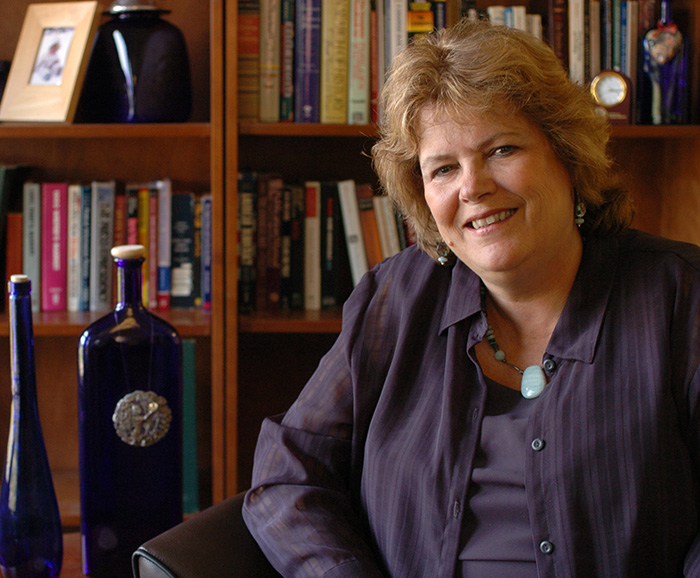
Dear Falk Students,
Welcome back to campus, returning Falk students! Let’s give a very special welcome to the Class of 2023, as well as new transfer and graduate students. We are thrilled to have you join us. I hope you each enjoyed an adventurous and restful summer.
What a special time to be at Syracuse! There are plenty of exciting events planned on campus this semester, including a very special Orange Central homecoming and reunion on September 12-15, which will commemorate 150 years of Syracuse University history.
As we jump right into the Fall 2019 semester, I would like to remind you of some important information that will help you as you begin—or continue—your studies here at Falk College.
Falk College Student Services is your support system. Student Services counselors are here to provide you with private academic advising and help you meet your requirements and goals. In addition, they are your resource for private consultation related to student social and emotional concerns. If you have any concerns throughout your academic career, please contact Student Services or visit Suite 330 Barclay Hall in the Falk Complex.
I encourage you to connect with the staff at Falk Career Services, who can help you prepare for life after college through career exploration, internship and job searching, professional networking, and more. They are also located in Suite 330 Barclay Hall, or you can search for opportunities through Handshake, the University’s job search and professional events portal.
In addition, you can connect to spiritual life on campus at Hendricks Chapel, as well as health and counseling services now open in the Barnes Center at the Arch. Visit news.syr.edu to keep up with Schine Student Center renovations and other important University updates.
The Student Lounge, located in Falk 216, is available to you anytime the Falk Complex is open. The lounge has a microwave, refrigerator, and vending machines for student use. Across the hall is the Falk Café on 2, open 8:00 a.m. to 3:00 p.m., Monday through Friday. In addition to smoothies, make-your-own salads, and wraps, the Café has a grill for sandwiches, hamburgers, veggie burgers, and many other items. Just down the hall is Falk 229, the quiet student lounge.
There are several computer labs in the Falk Complex. Falk 113 is a PC lab, Falk 253 is a Mac lab. Both are available to students at any time. Falk 400 and 407 are PC labs that are also used as teaching classrooms. When class is not in session, they are open for student use. You may check their schedule of availability using the Orange Events website. You may also use the quick-print stations in Falk 216 and 229 for printing and email. These stations log out automatically after 15 minutes of use.
The Student Involvement Fair will be held Wednesday, September 4 on the Quad from 11:30 a.m. to 3:00 p.m. (Rain location: Goldstein Auditorium in Schine Student Center). With more than 300 student organizations on campus, you are sure to find something that interests you. I highly encourage each of you to attend.
You can discover activities and events on campus by visiting the University’s new community calendar. You can also follow Falk College and other campus groups on social media.
Syracuse University email is the primary communication method at the University. Your professors and University offices will contact you with important information using your Syracuse University email address (ending in “@syr.edu”), not your personal email address. So, it is essential to read your University email at least once every day.
While I hope this list is helpful, there are many other resources available to you at Syracuse University. Please visit syracuse.edu/life/students to review a more inclusive listing of valuable student resources to enhance your experience at Syracuse.
With that, I wish you the very best for the upcoming Fall 2019 semester. Once again, welcome to Falk College and the Syracuse University family.
Go Orange!
Diane Lyden Murphy, M.A., M.S.W., Ph.D.
Dean
Falk College
Falk College welcomes new faculty and staff
Syracuse University’s Falk College is pleased to announce the appointment of new staff members who have joined Falk College in the past academic year, including Karen Goebel, office coordinator in the School of Social Work; Meredith Groman, administrative assistant and Jamie Rhoades, assistant teacher in the Bernice M. Wright Child Development Laboratory School; Kevin McNeill, internship placement coordinator in the Department of Sport Management; Megan Myers, assistant director of development in the Office of Advancement; Kathleen Nasto, office coordinator in the Department of Human Development and Family Science; Jessica Pitcher, career advisor and David Sly, associate director of career services in the Office of Student Services; Laura Sauta, administrative assistant and Megan Snow, internship placement coordinator in the Department of Public Health, and; Zachary Schuster, assistant director of undergraduate admissions and recruiting in the Office of Admissions.
It also welcomes five new faculty members, Justin Ehrlich, Chandice Haste-Jackson, Jeremy Losak, Stefanie Pilkay, and Xiafei Wang.
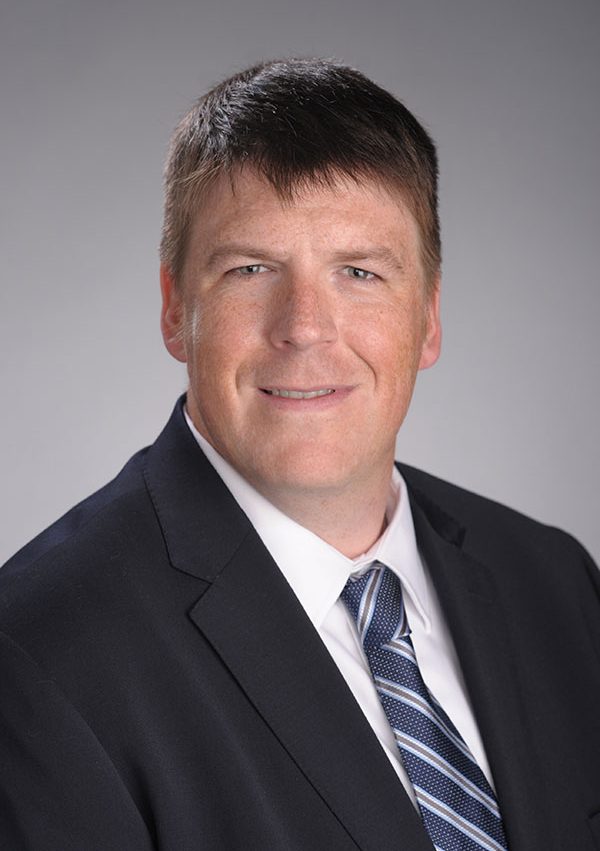
Justin Ehrlich
Assistant Professor, Department of Sport Management
Justin Ehrlich joins Syracuse University’s Falk College Department of Sport Management as a tenure-track assistant professor in Fall 2019, where he will teach in the area of sport analytics.
Prior to joining Syracuse University, Ehrlich taught as an associate professor at Western Illinois University, School of Computer Sciences, since 2010 in Macomb, IL. There, he specialized in data visualization, visual analytics, sport data computation and analysis, machine learning, computer graphics, virtual reality, server-side development, languages and technology. He taught several courses such as Topics of Computer Science: Data Visualization, Operating Systems, Advanced Computer Graphics, Server-Side Development, and served as chair of the Council for Instructional Technology and chair of the IT Governance Executive Committee. He previously worked as an AViSSS (Animated Visual Supports for Social Skills) lead software developer for the University of Kansas and has held roles such as ASP.net developer for Nomise Systems and lead developer for HSSportsTV.net, both in Wichita, KS.
Ehrlich has published several papers in sport data visualization and analysis in Public Choice, Mathematical Social Sciences, Games, and the Journal of Quantitative Analysis in Sport. He has conducted many talks and live demonstrations on sport data computation, visualization, and analysis that incorporate use of Tableau (with VizQL), R, Python, and D3.
Ehrlich’s research has received support from the U.S. Department of Education, the U3E, and from Falk College. He was awarded the Moore Best Ph.D. Dissertation Award from the University of Kansas School of Engineering, the Provost’s Award for Academic Excellence in Teaching with Technology from Western Illinois University, and several awards from WIU’s College of Business and Technology.
Ehrlich earned a Ph.D. in computer science from the University of Kansas in 2010. His dissertation was titled, “The Effect of Desktop Illumination Realism on Presence and Generalization in a Virtual Learning Environment.” He also holds a computer science M.S. earned in 2007 from Wichita State University, and an accounting and business administration B.B.A., earned in 2004 from Friends University in Wichita, KS.
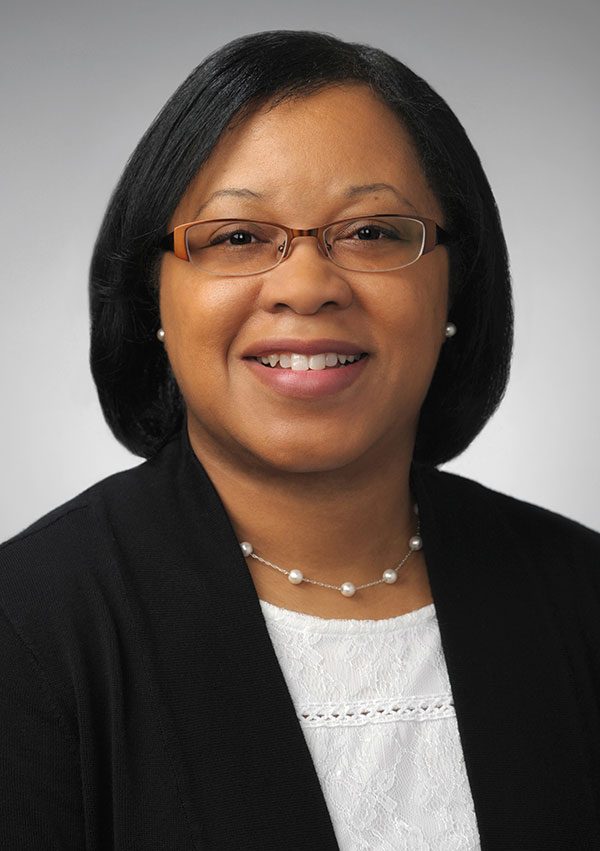
Chandice Haste–Jackson
Associate Teaching Professor, Department of Human Development and Family Science
Chandice Haste–Jackson is an associate teaching professor in the Department of Human Development and Family Science beginning Fall 2019.
In addition to working as internship coordinator in Falk College since 2016, Haste-Jackson has served as adjunct faculty in the Department of Human Development and Family Science since 2005, teaching courses such as Intimate Relationships and Gender Roles, Family Development, and Diversity, Equity and Inclusion. She has also taught as adjunct faculty for Onondaga Community College and the American Public University/American Military University System Department of Human Development and Family Science. She previously served in Syracuse University’s School of Education as director of the Liberty Partnerships Program and has held positions at the Chadwick Residence, Inc., the Dunbar Association, and Syracuse Model Neighborhood Facility, Inc.
Haste-Jackson serves on the School Counselor Advisory Board for the Syracuse City School District and is a consultant for My Brother’s Keeper Syracuse initiative founded by President Obama.
Haste-Jackson has presented for the Society for Research on Adolescence in San Francisco, CA and the National Council on Family Relations in Orlando, FL. She has given presentations for the U.S. Department of Education Office of Innovation and Improvement in Washington, DC, the New York State Education Department Empire State Youth Summit in Albany, NY, Ethiraj College and Women’s Christian College in Chennai, India, as well as for the National Diversity Council’s Upstate New York College Diversity Summit in Syracuse, NY, among others.
Haste-Jackson’s work in urban youth development, vulnerable families, cross-cultural family dynamics, and diversity education has received support from the United States Department of Housing and Urban Development, New York State Office of Temporary Disability Assistance, New York State Legislature-Joan Christensen, Onondaga County Department of Long-Term Care and Aging Services, Onondaga County Youth Bureau, Onondaga County Department of Health, Onondaga County Department of Social Services, United Way of Central New York, and Syracuse University.
Haste-Jackson earned a Ph.D. in child and family studies from Syracuse University in 2013. Her dissertation was titled, “Strengths and Risk Factors for Romantic Relationships: Perspectives of African American Women.” She also holds a M.S. in behavioral sciences with a concentration in psychology, earned from Cameron University in 1999, and a B.A. in cultural anthropology, earned from Syracuse University in 1996.
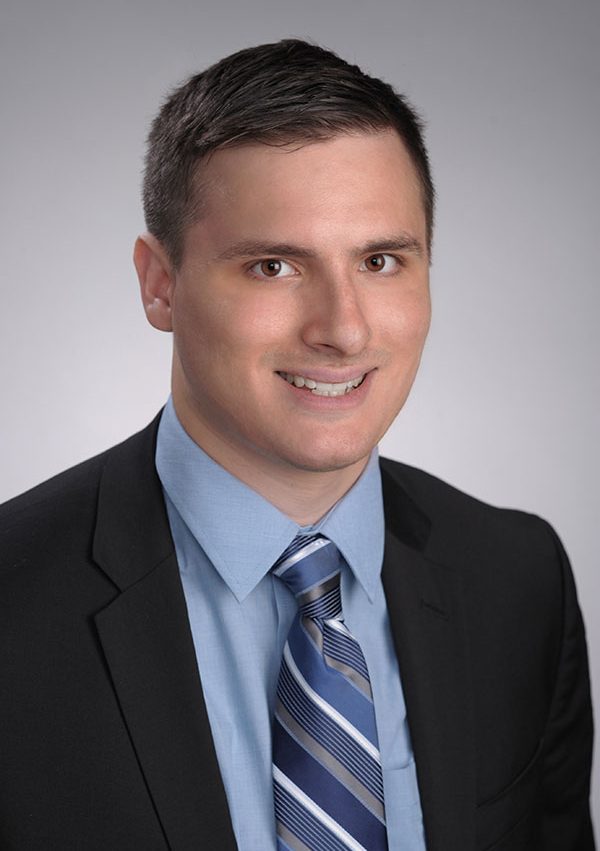
Jeremy Losak
Assistant Professor, Department of Sport Management
Jeremy Losak joins Syracuse University’s Falk College Department of Sport Management as a tenure-track assistant professor in Fall 2019, where he will teach in the areas of sport management and sport analytics.
Prior to joining Syracuse University, Losak was a graduate assistant in the John E. Walker Department of Economics at Clemson University. His teaching experience includes positions as teaching assistant for Sport Economics, teaching assistant and later head teaching assistant for Undergraduate Principles of Microeconomics and Principles of Macroeconomics, and teaching assistant for Managerial Economics. In the sports industry, he was a baseball analytics consultant for Wasserman Media Group, marketing analytics consultant for The Madison Square Garden Company, and analytics intern for the Auburn Doubledays.
Losak’s research focus is in sports economics, particularly sport labor markets and betting markets. He is published in Managerial Finance and in the Academy of Economics and Finance Journal. He has given several presentations at venues such as the 2019 Eastern Economic Association Conference in New York, NY; the 2018 Southern Economic Association in Washington, DC; the 2018 Missouri Valley Economic Association’s Sports Economics Session in Memphis, TN, and; the Center for Research in Sports Administration’s Sports, Data, and Journalism Conference at the University of Zurich in Switzerland.
Losak is the recipient of a Junior Researcher Award for the 2018 Sports, Data, and Journalism Conference at the University of Zurich and the Distinguished Student Paper Award at the 2018 Missouri Valley Economic Association Conference. He is also the recipient of travel grants from the Institute for Humane Studies Hayek Fund and Clemson Graduate Travel Grant Service. He was named a 2016 Falk College Class Marshal and a Falk College Scholar while at Syracuse University.
Losak earned a Ph.D. in economics from Clemson University in 2019 where he was a Koch Fellow in the John E. Walker Department of Economics. He also earned a B.S. in sport management from Syracuse University’s Falk College in 2016.
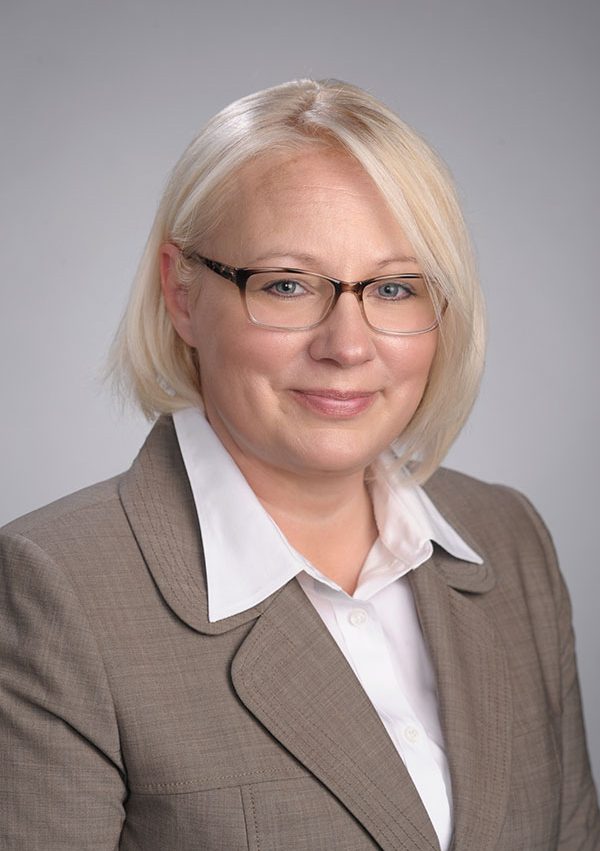
Stefanie Pilkay
Assistant Professor, School of Social Work
Stefanie Pilkay joins Syracuse University’s Falk College School of Social Work as a tenure-track assistant professor in Fall 2019.
Before joining Syracuse University, Pilkay served as an adjunct lecturer at both Yeshiva University’s Wurzweiler School of Social Work in New York, NY since 2018 and the University of Tennessee, College of Social Work in Knoxville, TN since 2015, teaching research methodology, trauma theory and practice, lifespan and neurophysiological development, and human behavior in the social environment. She was also a postdoctoral fellow at the Emory University School of Medicine, Department of Gynecology and Obstetrics in Atlanta, GA since 2017. She has served as a court-appointed special advocate for Anderson County Tennessee Juvenile Court. In 2014, she was a forensic social worker for the Community Law Office, Knox County Public Defender’s Office. Specific to her research experience, Pilkay has served since 2018 as an early investigator trainee on “Developmental Origins of Health and Disease,” an international cross-discipline research study with collaborations between Canada and the U.S.
Pilkay’s research interests include trauma, early-life adversity, inter-generational transmission of adversity, adversity and trauma mechanisms for risk and resilience in human development. She is published in the Journal of Social Work Education, the Journal of Social Service Research, and has given several peer-reviewed presentations, most recently at the 64th Annual Program Meeting of the Council on Social Work Education in Orlando, FL, Connecting for Children’s Justice Conference in Murfreesboro, TN, the International Congress on Child Abuse and Neglect in Prague, Czech Republic, and the 73rd Annual Scientific Meeting of the Society of Biological Psychiatry in New York, NY. Pilkay’s work has been supported by the National Institute of Health/National Institute on Minority Health and Health Disparities and the University of Tennessee Health and Science Center.
Pilkay earned a Ph.D. in social work with a minor in graduate statistics from the University of Tennessee, Knoxville in 2017. She holds a M.S. in social work, an evidence-based interpersonal practice major with trauma treatment graduate certification, and a B.S. in social work with majors in honor’s social work and psychology, earned in 2014 and 2013, respectively, from the University of Tennessee, Knoxville.
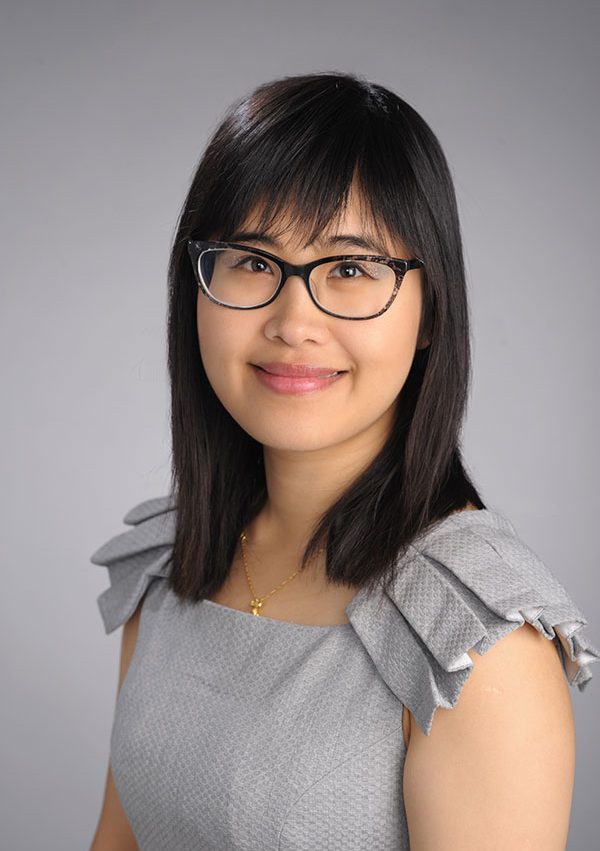
Xiafei Wang
Assistant Professor, School of Social Work
Xiafei Wang joins Syracuse University’s Falk College School of Social Work as a tenure-track assistant professor in Fall 2019.
Prior to joining Syracuse University, Wang served as a research assistant on “Evaluation of Chinese National Working Committee on Children and Women & the United Nations Children’s Fund Joint Child Friendly Spaces Project in China,” funded by the United Nations Children’s Fund: China since 2017, and on “Improving Child and Adolescent Mental Health and Health Outcomes: Integrative Family and Systems Treatment (I-Fast) Integrated Episode of Care Model” since 2014, funded by the Ohio Department of Mental Health & Addiction Services and Department of Developmental Disability.
Wang has published peer-reviewed articles in Social Work Research, Journal of Social Service Research, The Journal of Health Disparities Research and Practice, Children and Youth Services Review, Journal of Developmental Behavioral Pediatrics, PsyCh Journal, Community Mental Health Journal, Child Psychiatry and Human Development, Child Abuse & Neglect, and Social Work in Mental Health, as well as multiple book chapters.
Wang recently presented at the 32nd Annual San Diego International Conference on Child and Family Maltreatment in San Diego, CA, the Council of Social Work Education 64th Annual Program Meeting in Orlando, FL, National Association of County and City Health Officials 2018 Annual Meeting in New Orleans, LA, the Joint World Conference on Social Work, Education and Social Development 2018 in Dublin, Ireland, ResilienceCon 2018 in Nashville, TN, and the Society for Social Work and Research 22nd Annual Conference in Washington, D.C., among other presentations.
Wang’s work has received support from the Society for the Psychological Study of Social Issues, Big Cities Health Coalition, Central Benefits Health Care Foundation, and the Ohio State University College of Social Work.
Wang earned a Ph.D. from The Ohio State University in 2019. Her dissertation was titled, “Breaking the Cycle of Intergenerational Trauma: A Mixed-Methods Study.” There, she also earned her M.S.W. in 2015. She earned a M.A. in social work and social policy from Peking University in 2012 and a L.L.M. from the Peking University Law School & The Raoul Wallenberg Institute of Human Rights and Humanitarian Law in Beijing, China and Lund, Sweden in 2011, where she was named valedictorian. She also earned a B.A. in social work from Peking University in 2009.
Welcome Class of 2023!
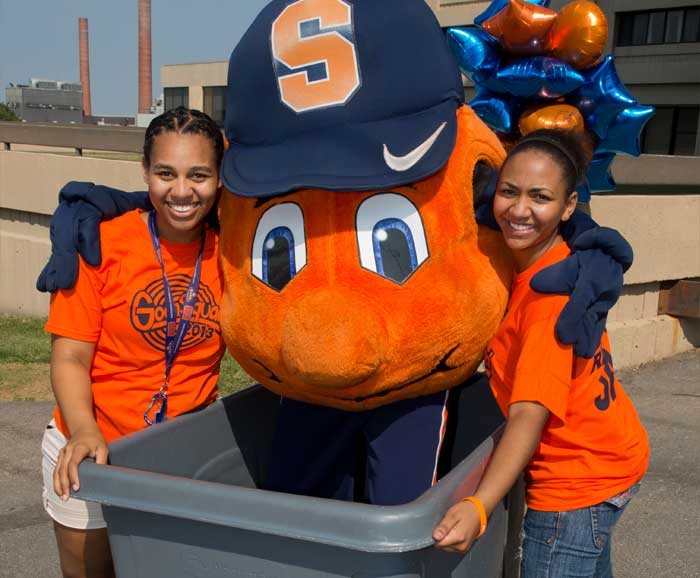 Falk College welcomes the Class of 2023 including 307 first-year and 20 transfer students who join 140 graduate students who are new as well. Welcome back to all Falk students who, this year, represent 40 states and 30 countries!
Falk College welcomes the Class of 2023 including 307 first-year and 20 transfer students who join 140 graduate students who are new as well. Welcome back to all Falk students who, this year, represent 40 states and 30 countries!
The entire welcome week schedule for new students can be found by visiting the Syracuse Welcome website.
Falk College honors faculty for excellence in research, service and teaching
Professors Rashmi Gangamma, Tracey Musarra Marchese, Yvonne Smith receive 2019 Falk College Faculty of the Year Awards
Faculty members from the Department of Marriage and Family Therapy and School of Social Work were honored for excellence in teaching, research and service with 2019 Falk College Faculty of the Year Awards on May 3. The honorees, who are nominated by their peers for outstanding performance and contributions to students, the Falk College, Syracuse University and beyond. They include:
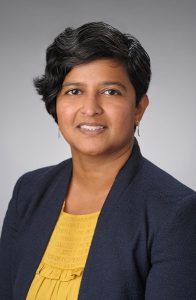 |
Dr. Rashmi Gangamma, Associate Professor, Marriage and Family Therapy Excellence in Research |
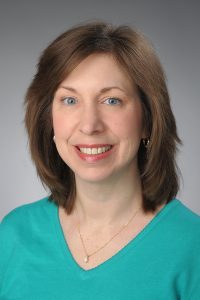 |
Professor Tracey Musarra Marchese, School of Social Work Excellence in Service |
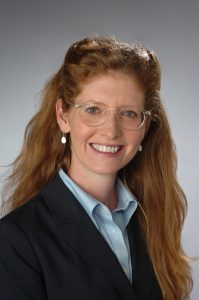 |
Dr. Yvonne Smith, School of Social Work Excellence in Teaching |
Page 9 of 16
